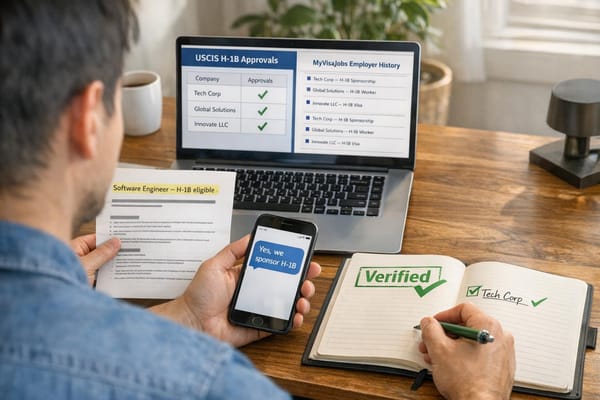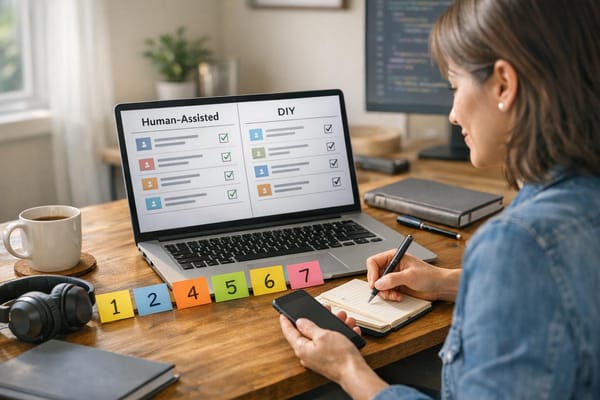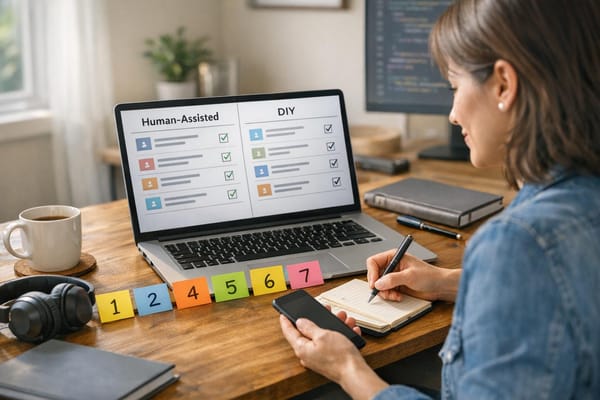Professional Interview Shoes Guide 2025
Choosing the right shoes for interviews is essential for making a great first impression and showcasing professionalism.
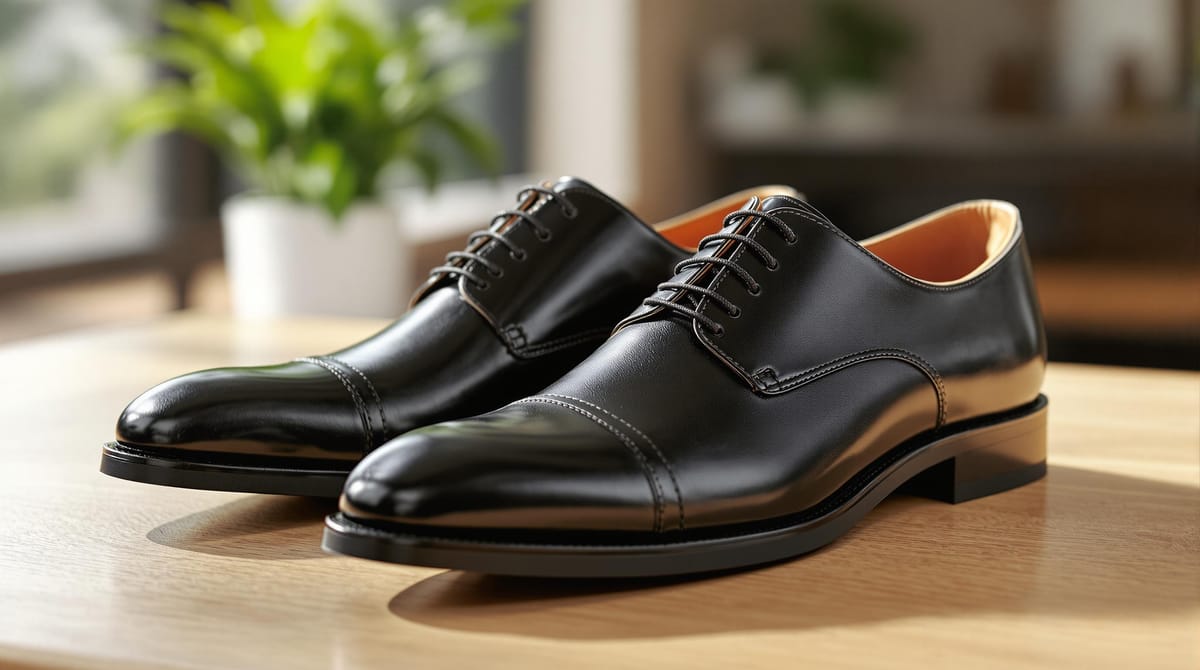
Your shoes play a crucial role in making a strong first impression during job interviews. Whether you're applying to a corporate, creative, or startup environment, the right pair of shoes can showcase professionalism, attention to detail, and your understanding of workplace culture. Here's what you need to know:
- Match the Dress Code: Stick with polished leather Oxfords or pumps for formal settings. Loafers, dress boots, or brogues work better for creative or casual industries.
- Prioritize Comfort: Choose shoes that fit well and are comfortable for walking or standing. Avoid heels over 3 inches and ensure proper arch support.
- Stick to Neutral Colors: Black, brown, navy, and beige are versatile and professional choices.
- Maintain Your Shoes: Regular cleaning, polishing, and proper storage keep your shoes looking sharp and ready for interviews.
Quick Tip: Polished, closed-toe shoes are always a safe choice, no matter the industry.
Read on for detailed tips on selecting, maintaining, and styling interview-appropriate footwear.
What to Look for in Interview Shoes
Matching Shoes to Workplace Dress Codes
Shoes play a big role in first impressions, so understanding the workplace dress code is key. In formal corporate environments, polished leather shoes are the go-to. Men might opt for black oxfords, while women can consider closed-toe leather pumps. For more creative industries, there’s room to experiment - brown loafers or dress boots can strike the right balance between style and professionalism.
Balancing Style and Comfort
Comfort matters just as much as style, especially during interviews that might involve walking or standing for extended periods. Pick shoes that are easy to move in. Women should keep heel height under 3 inches, and men should prioritize dress shoes with cushioned insoles and good arch support. Make sure your shoes are broken in ahead of time to avoid discomfort on the big day.
Choosing the Right Colors and Materials
Leather is a top choice for its polished look and durability. Black shoes work well with formal outfits, while brown pairs nicely with semi-formal attire. Navy shoes are a good match for business casual styles. Jobera recommends:
"Opt for professional shoes. Choose closed-toe, polished shoes like loafers, Oxfords, or classic pumps."
Chelsea boots and monk strap shoes are becoming more accepted in professional settings, but it’s always a good idea to check your industry’s norms before going bold. Neutral colors like black, brown, or navy offer versatility, making them a smart addition to your professional wardrobe. And don’t forget - regular care will keep your shoes looking sharp and interview-ready.
What Shoes Should Women Wear to an Interview?
How to Keep Your Shoes Looking Professional
Taking care of your shoes not only helps you look sharp but also extends their lifespan. A little attention goes a long way in keeping them looking polished and ready for any occasion.
Tips for Cleaning and Polishing Shoes
To keep your shoes looking their best, start by cleaning them with a soft brush or a damp cloth after each use. This removes dirt and prevents buildup. Once a month, apply a leather conditioner to keep the material from cracking and to maintain its softness. When it’s time to polish, you’ll need a few tools: a horsehair brush for buffing, a dauber for applying the polish, and a reliable shoe polish that matches your shoe color. Work the polish into the leather using small circular motions, let it dry, and then buff it out with the brush for a polished, professional shine.
"Regular cleaning and polishing, using high-quality products, and proper storage are essential for maintaining professional-looking shoes. Using multifunctional products like Artistic Cream provides both nourishment and protection".
Proper Storage and Protection
Store your shoes in a cool, dry spot, and use cedar shoe trees to absorb moisture and help them keep their shape. To protect against the elements, apply a waterproofing spray made specifically for your shoe material.
Here’s a simple maintenance routine to follow:
- Clean your shoes after each wear.
- Condition them once a month.
- Polish them every two weeks or before important events.
- Use cedar shoe trees when storing them.
A well-maintained pair of shoes shows that you pay attention to detail and are ready to make a great impression. Once your shoes are in top condition, it’s worth thinking about which styles work best for different professional settings.
Best Shoes for Different Interview Settings
The right shoes can make a strong impression during an interview, and your choice should match the company culture and the role you're aiming for.
Shoes for Formal Interviews
In traditional corporate environments like banking, law, or consulting, it's best to stick with classic, polished footwear. These small details show that you understand professional norms and expectations.
| Gender | Recommended Styles | Best Colors |
|---|---|---|
| Men | Oxford shoes, Cap-toe shoes | Black, Dark Brown |
| Women | Closed-toe pumps (2-3 inch heel), Classic leather loafers | Black, Navy, Beige |
"The best height for interview shoes is the one you can walk in comfortably, and possibly quickly on the off chance your interviewer takes you to a lunch interview and has a long stride."
Leather shoes are a solid choice for formal settings, offering a polished and professional appearance. For women, a heel height of 2-3 inches strikes the right balance between style and comfort.
Shoes for Less Formal Interviews
Even in more relaxed environments, your footwear should still be neat and professional. Research the company's culture to guide your choice of versatile styles like dress boots, brogues, or polished ankle boots.
| Interview Setting | Recommended Footwear | Key Considerations |
|---|---|---|
| Tech Companies | Dress boots, Modern loafers | Clean, minimalist designs |
| Creative Industries | Brogues, Fashion flats | Stylish but professional |
| Startups | Smart dress shoes, Polished ankle boots | Contemporary yet neat |
"Opt for professional shoes. Choose closed-toe, polished shoes like loafers, Oxfords, or classic pumps."
While modern workplaces may be more casual, it's better to lean slightly formal with your footwear. Closed-toe styles and polished finishes are always a safe bet.
Choosing the right shoes can elevate your overall presentation, but steering clear of footwear missteps is just as important for making a strong impression.
Mistakes to Avoid When Choosing Interview Shoes
Wearing Shoes in Poor Condition
Your footwear plays a big role in making a strong first impression during interviews. Shoes in poor shape can ruin your professional image, no matter how well-dressed you are otherwise. Here are some common problems and how to address them:
| Issue | Impact | How to Fix It |
|---|---|---|
| Scuffed leather | Signals neglect | Use material-specific polish regularly |
| Worn-out soles | Shows lack of care | Inspect monthly and replace when needed |
| Creases, scratches, or discoloration | Suggests poor preparation | Rotate between multiple pairs to reduce wear |
| Deformed shape | Points to improper storage | Use shoe trees and store them properly |
"Experts emphasize the importance of regular cleaning and conditioning for leather shoes to prevent cracking and maintain their appearance. Using appropriate products and techniques can extend the lifespan of shoes and ensure they look professional"
Proper storage, like using shoe trees, not only keeps your shoes in shape but also reduces moisture buildup - especially crucial for leather footwear.
Choosing Shoes That Don't Fit the Setting
Your choice of shoes should align with the company culture and interview setting. Here's how to match your footwear to different workplace environments:
| Workplace Type | Avoid These | Opt For These |
|---|---|---|
| Corporate | Sneakers, flashy colors | Neutral pumps, classic oxfords |
| Creative | Overly formal wingtips | Stylish flats, modern loafers |
| Tech Startups | Sandals, visibly damaged boots | Minimalist designs, clean dress boots |
Understanding the company vibe is key to striking the right balance. Sneakers might be too casual for corporate roles, while overly formal shoes could feel out of place in creative settings. Regardless of the environment, polished, closed-toe shoes are always a safe bet.
For leather shoes, regular conditioning helps maintain their look and prevents cracking. Make sure your shoes are both comfortable and stylish - opt for breathable materials and a proper fit, as you might need to walk or stand during the interview.
Helpful Tools and Services for Job Seekers
Navigating the job market can feel overwhelming, but the right tools can make the process much smoother. By efficiently managing your applications, you can focus on what really matters - like nailing your interviews.
How Scale.jobs Can Simplify Your Job Search
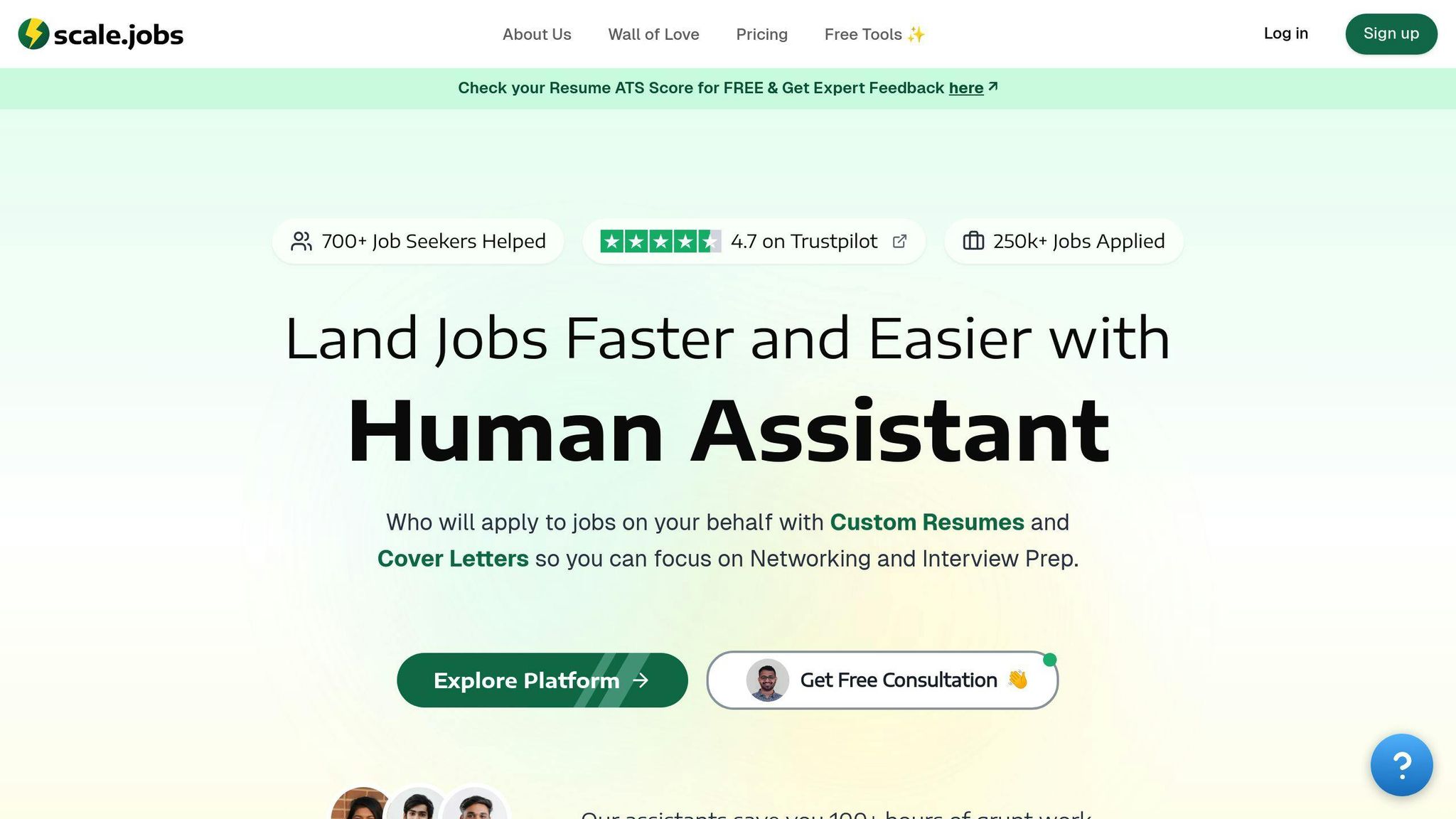
Scale.jobs takes the hassle out of applying for jobs. Their virtual assistants handle the heavy lifting, from creating tailored resumes and cover letters to ensuring your application matches the specific job requirements. This means you can spend less time stressing over paperwork and more time preparing to impress during interviews.
At just $4 per hour, Scale.jobs offers an affordable way to streamline your job hunt. With their support, you can focus on the finer details of your interview preparation, like perfecting your outfit and exuding confidence.
Conclusion: Make a Strong Impression
The right pair of polished shoes can quietly communicate professionalism, confidence, and respect for the occasion. Choosing appropriate footwear shows you understand workplace expectations and pay attention to details - qualities employers appreciate.
As you get ready for interviews in 2025, aim to balance comfort with style. Wearing polished, professional shoes allows you to focus on showcasing your skills without distractions. With tools like Scale.jobs simplifying your job search, you can spend more time perfecting these small yet impactful details that help you stand out in interviews.

